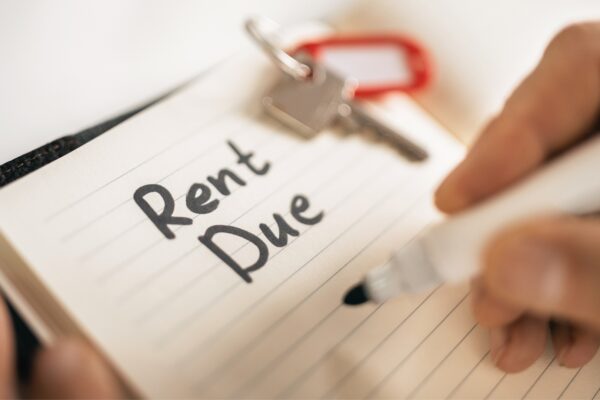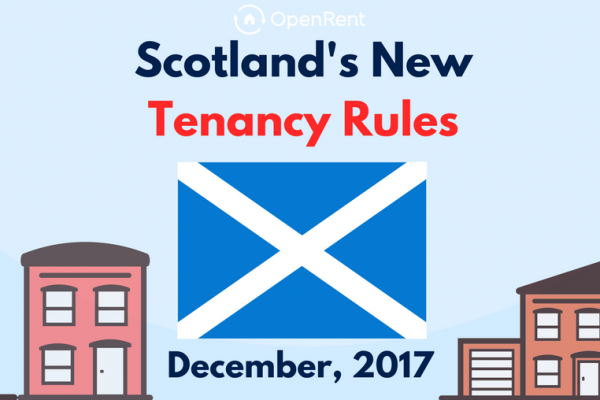Your Section 21 notice will become invalid if you or your agent breach any of the rules on tenant fees.
The Tenant Fees Act 2019 imposed restrictions on the fees landlords and agents can charge tenants, introduced a cap on tenancy deposits, and regulated the handling of holding deposits.
As of 1st June 2019, the Act applies to assured shorthold tenancies (ASTs) and licenses to occupy housing in England that were initiated from this date onwards. From 1st June 2020, it began to extend its reach to existing tenancies.
Local authorities are primarily responsible for enforcing the ban on fees, although tenants have the option to directly enforce the ban by submitting a claim to recover any unlawful fees through the First-tier Tribunal.
- Section 21 and the Tenant Fees Act
- Can I still serve a Section 21 notice after the fee is returned to the tenant?
- If my agent takes a banned fee, will my Section 21 notice still be valid?
Serve your Section 21 notice with confidence, knowing it’s done correctly and legally, thanks to our free notice-serving tool.
Serve NoticeSection 21 and the Tenant Fees Act
Aside from reclaiming unlawful fees, tenants can leverage the impact fees have on Section 21 eviction notices.
Under the Tenant Fees Act, a landlord is barred from serving a valid Section 21 notice if:
- The landlord has required the tenant (or guarantor) to pay a prohibited payment, and such a payment has in fact been made; or
- The landlord has breached the rules relating to holding deposits at Schedule 2 of the Act
In other words, if the landlord took a banned fee, then they will not be able to use Section 21 to evict their tenants.
Can I still serve a Section 21 notice after the fee is returned to the tenant?
If the landlord returns the prohibited payment or holding deposit to the tenant (or guarantor), then the restriction is lifted and the landlord will be able to use Section 21.
Alternatively, the landlord may agree with the tenant that the money is to be used as rent or credited towards the deposit.
You can also return part of a prohibited payment and put some towards the rent or deposit, but again this must be with the tenant’s consent.
You might also be interested in…
- When Will Section 21 Evictions Be Scrapped?
- All You Need to Know About Right to Rent Checks
- Guide to the Renters’ Rights Bill for Landlords 2025
- What Are the EPC Requirements for Landlords?
- Renting to Students: Guarantors, Advance Payments, HMO licence and more
These rules are relatively straightforward when compared to some of the other regulations regarding the validity of Section 21 notices.
You should check, before serving a Section 21 notice, whether any payments you have taken breach the Tenant Fees Act. Any unlawful payments must be returned even if the tenant is not asking for the money back.
If my agent takes a banned fee, will my Section 21 notice still be valid?
When an agent has taken a prohibited payment, the implications of these rules become more intricate.
The Tenant Fees Act does not explicitly render a Section 21 notice invalid if an agent has breached the fee ban. However, this highlights the importance for landlords to consider payments made by their agents.
An agent usually collects money on behalf of their ‘principal’, i.e., the landlord. If the agent has accepted a payment from the tenant, in many legal contexts, it would be considered that the landlord received the money.
Therefore, landlords should take care to ensure that neither they nor their agents have received any prohibited payments before serving a Section 21 notice. If there are doubts about this, seeking further advice is recommended.
Robin Stewart is a senior associate solicitor at Anthony Gold. He specialises in residential landlord and tenant law, and the regulation of the private rented sector.




The article is understood and agreed.
As my tenancy agreement was agreed and signed before the date of implementation of this aspect of law, a partial refund was not necessary.
However, after the legal deadline I issued a Sect 21 and then cancelled it a week later in writing and I did not produce a new agreement as the existing one states it will turn into a rolling monthly contract, and I emphasised this in my cancellation notice. The tenant has continued to live in the property and pay the rent as per that agreement, but did not formally accept the cancellation - it was accepted by default as far as I can tell in law.
The tenant now claims that a partial refund is due as I had issued the Sect 21 notice. I disagree on the basis that a new agreement was not produced and the existing agreement catered for continuation beyond the fixed term and the tenant continued to live in my property.
I am due to reoccupy the property as my home at any time, and this was made clear at the outset, and the agreement was written to allow for this.
Has the tenant any grounds for believing a partial refund is due?
Does the issue and cancellation of the Section 21 Notice affect the agreement I put in place, e.g should I have produced a new agreement? I need it to be on a rolling basis for my imminent return!
Views, particularly legal, would be appreciated.